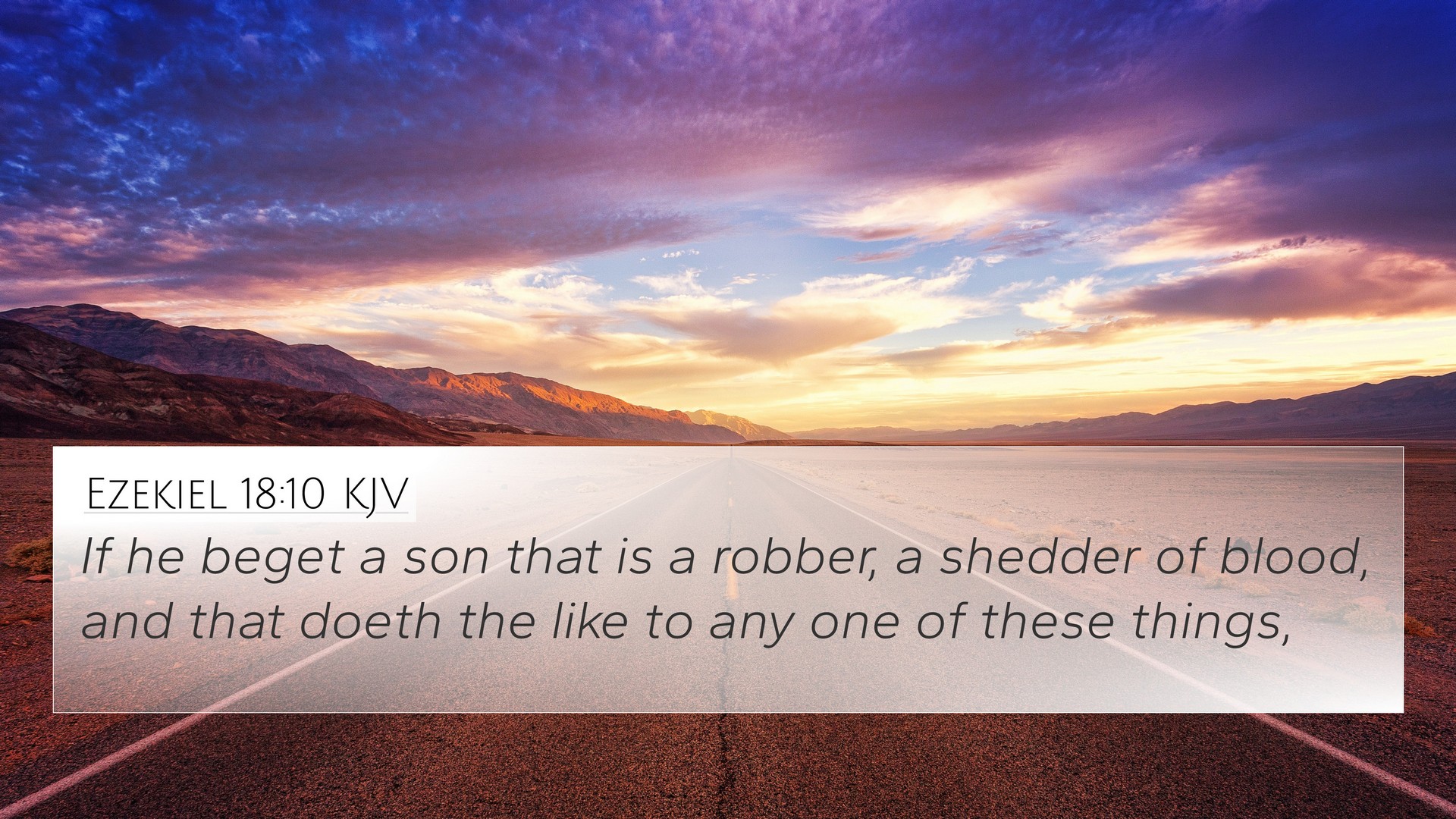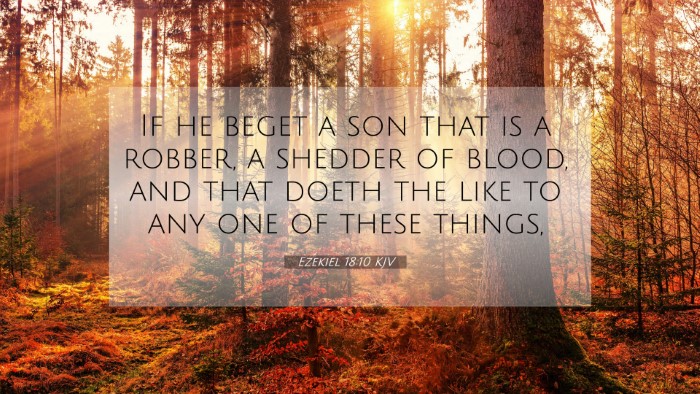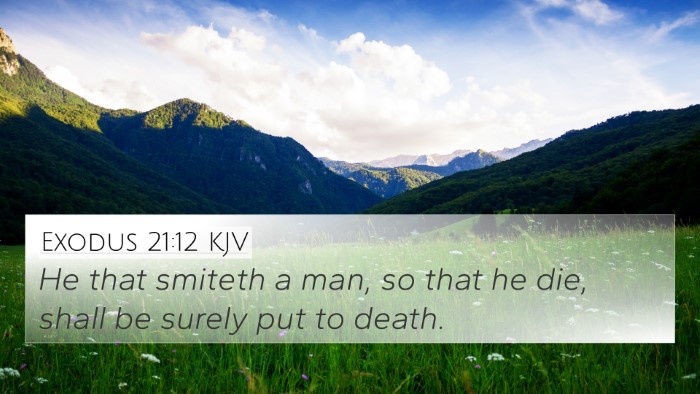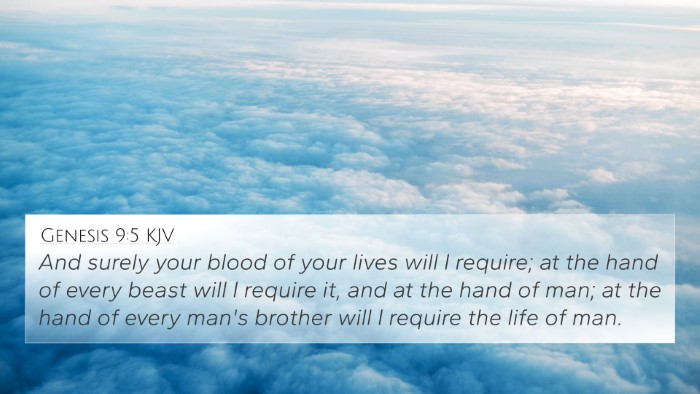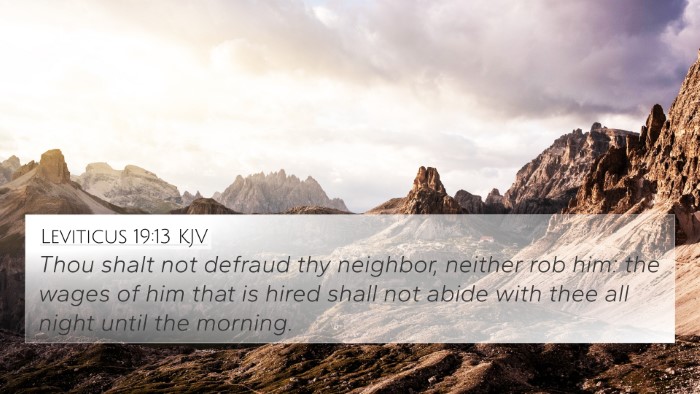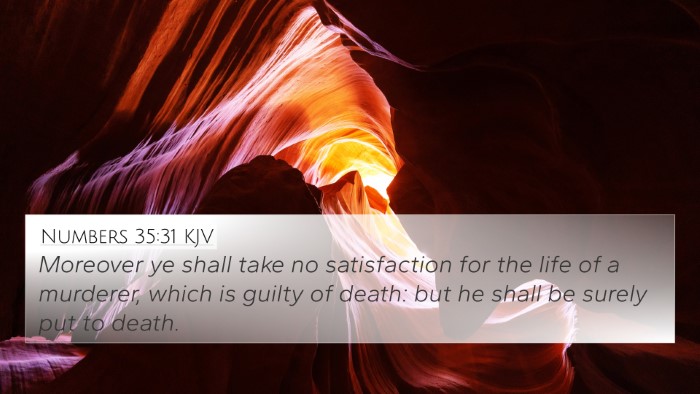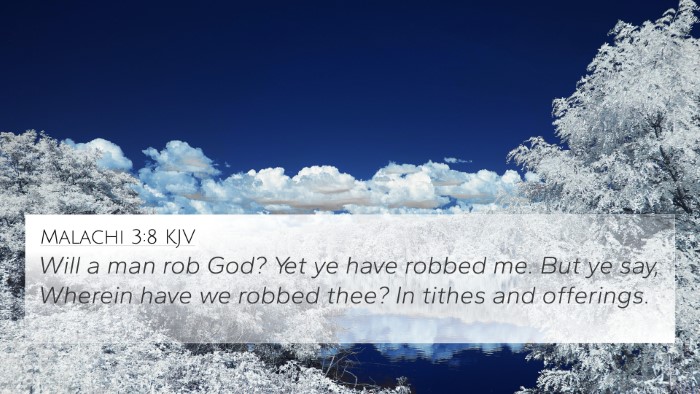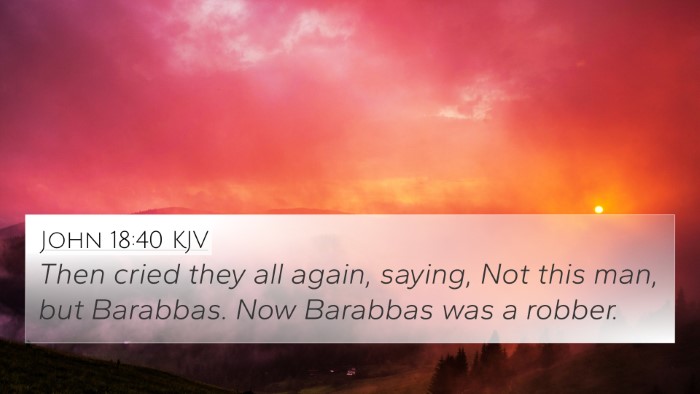Ezekiel 18:10 - Understanding the Verse
Ezekiel 18:10 states:
"If he beget a son that is a robber, a shedder of blood, and that doeth the like to any one of these things."
Summary of Insights
This verse examines the consequences of personal choices and behavior across generations. It illustrates the principle that each individual is responsible for their own actions, rather than inheriting the guilt or consequences of their ancestors' sins. The commentary on this verse identifies significant thematic connections and provides a deeper understanding through comparative analysis and cross-referencing with other scriptural texts.
Key Themes and Interpretations
- Individual Responsibility: The verse emphasizes that each person is accountable for their own sins. Ezekiel conveys that regardless of one’s lineage, moral choices determine righteousness or wickedness.
- Generational Consequences: While the actions of previous generations can be indicative, one's own choices ultimately shape one's destiny. This challenges the notion of predetermined fate based solely on ancestry.
- Justice of God: The justice of God ensures that everyone is judged fairly. The principle of personal accountability aligns with divine justice, where personal actions hold weight in the eyes of God.
Cross-References
This verse is interconnected with several other scripture references that support its meanings and themes:
- Deuteronomy 24:16: “The fathers shall not be put to death for the children, neither shall the children be put to death for the fathers: every man shall be put to death for his own sin.”
- 2 Chronicles 25:4: “But he slew not their children, but did as it is written in the law in the book of Moses, where the LORD commanded, saying, The fathers shall not die for the children, neither shall the children die for the fathers; but every man shall die for his own sin.”
- Galatians 6:5: “For every man shall bear his own burden.”
- Ezekiel 18:30: “Therefore I will judge you, O house of Israel, every one according to his ways, saith the Lord GOD. Repent, and turn yourselves from all your transgressions; so iniquity shall not be your ruin.”
- Romans 14:12: “So then every one of us shall give account of himself to God.”
- Matthew 12:36: “But I say unto you, That every idle word that men shall speak, they shall give account thereof in the day of judgment.”
- John 5:28-29: “Marvel not at this: for the hour is coming, in the which all that are in the graves shall hear his voice, and shall come forth; they that have done good, unto the resurrection of life; and they that have done evil, unto the resurrection of damnation.”
Theological Application and Practical Insights
The understanding of Ezekiel 18:10 encourages believers to reflect on their own lives and the significance of their choices. This verse becomes an invitation to explore the connections between their actions and their moral standing before God. As seen in the cross-references, the New Testament reiterates these principles, showcasing an inter-Biblical dialogue that emphasizes personal righteousness.
Connecting Bible Verses
When conducting a comparative Bible verse analysis, one can find various thematic connections that relate back to Ezekiel 18:10. Through cross-referencing, one can see these relationships and understand the fuller biblical context regarding sin, accountability, and God’s justice.
Tools for Bible Cross-Referencing
To study these connections effectively, it is beneficial to utilize:
- Bible concordances to find relevant verses.
- Bible cross-reference guides that provide systematic links between scriptures.
- Cross-reference Bible study methods to allow for deeper analysis.
- Bible reference resources that aid in extensive scriptural studies.
- Comprehensive Bible cross-reference materials for a thorough understanding.
Conclusion
By engaging with Ezekiel 18:10 and its contextual landscape, believers can gain insight into the importance of their personal responsibility in their spiritual journeys. The verse not only stands alone but also resonates with numerous other scriptures, reinforcing its message through the theological and ethical frameworks established in both the Old and New Testaments.
Further Study Ideas
- Consider how the message of individual accountability impacts daily life and faith practices.
- Explore the broader narrative of the book of Ezekiel for additional context around divine justice.
- Investigate the responses of other biblical characters to the principle of personal responsibility.
- Analyze the societal implications of this principle during different biblical periods.
